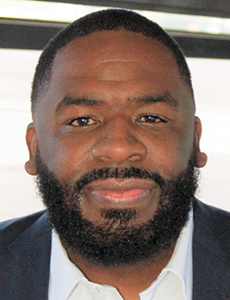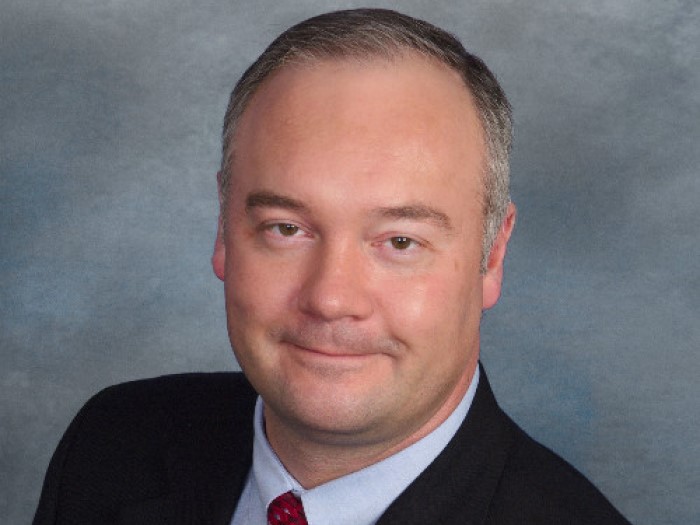2025 Theo Award Winner: WeGo Public Transit
 WeGo Public Transit faced an increasingly complex workers’ compensation landscape that threatened both operational efficiency and employee wellbeing across its public transportation network.
WeGo Public Transit faced an increasingly complex workers’ compensation landscape that threatened both operational efficiency and employee wellbeing across its public transportation network.
The agency confronted rising medical expenses, prolonged return-to-work timelines, and persistent claim closure delays that were straining resources and undermining its commitment to workforce support.
Operating in Nashville’s dynamic urban environment, WeGo’s employees work in high-risk, public-facing conditions that present unique challenges for workers’ compensation management.
Bus drivers navigate busy streets while managing passenger interactions, maintenance personnel work with heavy equipment and machinery, and terminal staff handle everything from crowd control to emergency situations.
These diverse operational demands created a complex risk profile that required sophisticated management approaches.
The former workers’ compensation system, while functional, lacked the strategic alignment and investigative efficiency the WeGo team wanted to adapt to growing case volumes and complexity.
Traditional approaches that might work for office environments or manufacturing facilities were inadequate for the multifaceted challenges of public transit operations, where incidents could involve not only employee injuries but also public safety considerations, regulatory compliance, and community relations.
A recurring challenge involved fragmented communication between critical stakeholders — claims administrators, legal counsel, internal safety officers, and health care providers. This disconnect led to avoidable claim escalations and insufficient early intervention opportunities.
When communication breaks down in workers’ compensation cases, minor issues can quickly escalate into major problems, creating additional stress for injured employees while driving up costs and extending resolution timelines.
Traditional investigative tools often required costly, time-intensive measures such as surveillance, social media searches, and medical canvassing to validate or dispute claims. These inefficient processes further strained WeGo’s limited resources while delaying resolution for employees who needed clarity and support during their recovery process. The agency recognized that spending significant resources on reactive investigation was less effective than investing in proactive prevention and early intervention strategies.
Perhaps most critically, the existing workers’ compensation framework didn’t fully reflect WeGo’s organizational commitment to a people-first culture.
While the agency had long prioritized employee wellbeing as a core value, there was growing recognition that the structure and support systems behind that commitment needed evolution. This was especially important when handling claims involving mental health issues, degenerative conditions, or potential litigation — areas where compassionate, informed response could significantly impact both employee outcomes and organizational liability.
WeGo also faced underutilization of existing technology resources. Despite substantial investment in advanced camera systems throughout buses and terminals for safety and security purposes, integration with claims administration and legal support remained limited.
This disconnect not only delayed resolution timelines but also resulted in missed opportunities for early claim mitigation, subrogation recovery, and better-informed compensability decisions.
Tackling the Problem
In October 2023, WeGo Public Transit implemented a transformative strategy centered on transitioning to Charles Taylor as its third-party administrator. This strategic shift became the cornerstone for reimagining the entire workers’ compensation program, emphasizing proactive risk management, technological integration, medical efficiency, and human-centered support that aligned with the agency’s core values.
The comprehensive initiative was built on five interconnected strategic pillars designed to address the systemic issues that had been limiting program effectiveness.
Technology became a frontline defense mechanism, with WeGo maximizing its existing camera systems across buses and facilities by integrating video footage directly into claims workflows.
Charles Taylor facilitated seamless digital sharing with legal counsel, dramatically reducing investigative spend while accelerating subrogation opportunities. These technological efficiencies eliminated the need for costly traditional investigations in many cases and supported faster, evidence-based decisions on claim validity and compensability.
“WeGo Public Transit’s transformation of its workers’ compensation program reflects a dedication to innovation and employee care, resulting in faster recoveries, reduced costs, and improved operational resilience. These accomplishments underscore why they earned recognition as a Theo Award winner,” shared Gregory Sisson, chief claims officer for Charles Taylor.
Cross-functional collaboration was strengthened through institutionalizing monthly claim review meetings that brought together upper management, claims administrators, legal counsel, and department heads.
These structured forums fostered transparency, enabled early intervention, and created real-time feedback loops that improved decision making across all levels of the organization.
Executive leadership became actively engaged in the process, enabling swift implementation of improvements and demonstrating deepened organizational commitment to employee wellbeing.
WeGo adopted a proactive medical strategy by introducing enhanced diagnostic protocols, including early MRI and CT scans after six physical therapy visits — or sooner when clinically indicated.

Nicholas Oldham, Nicholas Oldham, WeGo Public Transit
This approach streamlined return-to-work processes by quickly differentiating between degenerative conditions and acute injuries, enabling more targeted treatment approaches and realistic recovery expectations. For mental health claims, the agency established a direct referral system with a trusted physician, Dr. Kyser, including access to Intensive Outpatient Therapy for severe cases. This ensured compassionate, comprehensive support that addressed the whole person rather than just the immediate injury.
Legal foresight became integral to the risk containment strategy, with all mental health claims and cases involving questionable compensability referred to defense counsel early in the process.
This front-loaded legal investment helped avoid unnecessary claim acceptances and potential long-term exposure while ensuring that legitimate claims received appropriate support.
The trusted relationship with defense attorneys, including availability for off-hours communication, enabled quick legal determinations and contributed to a significant reduction in high-risk claims.
The transitional duty program was optimized to reduce lost time by reinforcing light-duty accommodations across most operational roles, with specific exceptions for maintenance work and positions with particular physical constraints.
This enabled more employees to return to productive work sooner, preserving both individual morale and operational continuity while demonstrating WeGo’s commitment to supporting employees through their recovery process.
Success to Build On
The results of WeGo Public Transit’s revitalized workers’ compensation strategy have been transformative.
Operational efficiency improved dramatically. Lost time claims dropped 14%, demonstrating the success of transitional duty and early intervention strategies. Lost work days were reduced 21%, underscoring both medical and operational benefits of proactive case management. Claim closures rose 42%, reflecting tighter workflows, better documentation, and enhanced stakeholder collaboration.
Organization: WeGo Public Transit * Location: Nashville* Number of Employees: 1,000 * Category: Transportation & Logistics
Financial efficiency gains were substantial, with average cost per lost time claim decreasing 36% and average cost per medical-only claim falling 39%. The number of open claims declined 16%, reducing financial liabilities while freeing resources for ongoing prevention and support initiatives.
The program now exemplifies leading with care, ensuring employees feel supported, informed, and valued throughout the claims process. The shift to a high-touch, communication-driven model treats team members not just as claimants but as colleagues deserving clarity, compassion, and confidence in their recovery journey.
Chief safety & security officer for WeGo, Nicholas Oldham, said, “Our priority is always to help each team member return to their baseline — physically, emotionally and professionally.”
WeGo Public Transit has established a new benchmark demonstrating that workers’ compensation programs can be both fiscally responsible and profoundly human-centered, creating safer, more supportive, and sustainable workplaces through the strategic pairing of cutting-edge tools with deep organizational empathy. &
 The Theo Award celebrates its sophomore year, honoring 32 workers’ compensation programs for their excellence and service to workers across the nation. To learn more about the award and amazing qualities each winner possesses, visit here.
The Theo Award celebrates its sophomore year, honoring 32 workers’ compensation programs for their excellence and service to workers across the nation. To learn more about the award and amazing qualities each winner possesses, visit here.











